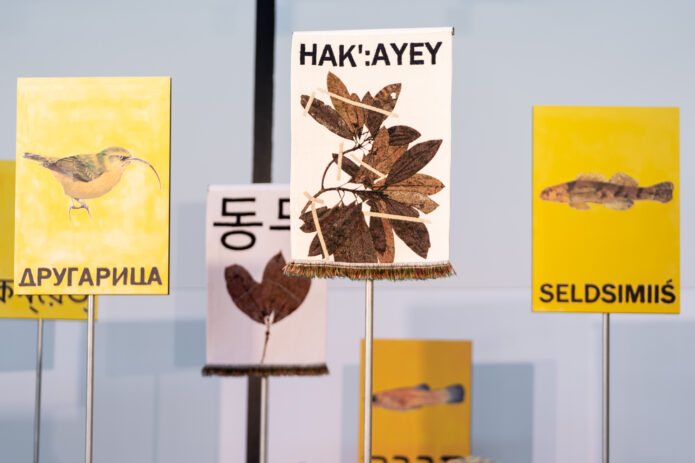Court for Intergenerational Climate Crimes: The Law on Trial
“When the law is unjust, we must put the law on trial.”
A new iteration of the project Court for Intergenerational Climate Crimes (CICC): The Law on Trial opens on the 18th of November 2022 in Seoul, South Korea. The exhibition will be on show until the 1st of January at Oil Tank Culture Park.
When the law is unjust, we must put the law on trial
This is the central thesis of the exhibition The Law on Trial, which introduces the project Court for Intergenerational Climate Crimes (CICC) initially commissioned by Framer Framed in 2021. This iteration by academic, writer, lawyer and activist Radha D’Souza and artist Jonas Staal at the Oil Tank Culture Park, Seoul is an immersive installation consisting of towers of oil barrels and images of animals that have been made extinct from the colonial period to the present, D’Souza and Staal present a legal framework in the form of The Intergenerational Climate Crimes Act to prosecute climate crimes committed by states and corporations alike.
The CICC is based on D’Souza’s book What’s Wrong With Rights? (2018), with the aim to prosecute climate crimes committed by states and corporations, not only in the past and present, but also in the future. The first edition of the CICC took place between 25 September 2021 and 13 February 2022 at Framer Framed in Amsterdam, with public hearings in which the Dutch State and transnational corporations registered in the Netherlands, such as Unilever, ING and Airbus, were tried for committing climate crimes. Prosecutors and witnesses provided evidence of their wrongdoing. The public acted as jury and were tasked with passing a verdict based on The Intergenerational Climate Crimes Act: the legal foundation of the CICC, which is central to the exhibition The Law on Trial in Seoul.
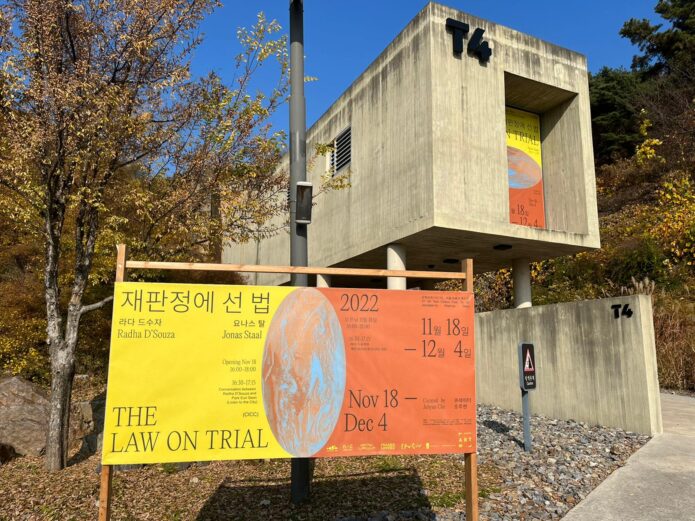
The Law on Trial (2022) – the Oil Tank Culture Park, Seoul
You can learn more about the CICC at Framer Framed here. All hearings that took place at Framer Framed have been recorded and can be viewed here.
The first waves of mass extinctions amongst animals and plant life as well as the human communities and cultures that thrived with them, manifested first during the colonial period. Colonialism turned living worlds into property, into commodities, and was backed by the law in doing so. In this light, the climate crisis is a colonial crisis, that has been ongoing for the past 500 years – aided and abetted by dominant legal systems and imaginaries. The images of animals made extinct that are central to the exhibition The Law on Trial, are evidence of that long history of climate criminality that continues to define our present and the possibility of liveable futures, but their presence is also a call to recognise them not as products or commodities, but as non-human ancestors, comrades even, with whom we share a common struggle to defend living worlds for all.
Situating The Law on Trial in the Oil Tank Culture Park, a former oil depot, brings D’Souza and Staal’s work to the site of the crime: fossil capitalism, and the fossil elites that have benefited from it. Building their installation from the remnants of the fossil industry that created the tank, such as defunct oil barrels, proposes to build on the ruins of extractive systems a new proposition: The Intergenerational Climate Crimes Act — a new legal imaginary that centers on intergenerationality, interdependency and regeneration across the human and non-human world; — a vision not of the law, but of justice, in which humans, animals and plants gather as comrades to regenerate the world anew.
Opening
November 18, 2022
Conversation between Radha D’Souza and Listen to the City at 16:30-17:15
Location
Oil Tank Culture Park
T4, 87 Jeungsan-ro, Mapo-gu
Seoul
About
Drifting Curriculum (ARKO International Joint Fund, 2021-2022 Korea-Netherlands International Exchange Program),
in partnership with Framer Framed, Amsterdam, with support from the Arts Council Korea, DutchCulture, Embassy of the Netherlands
Project team
Radha D’Souza and Jonas Staal (artists); Juhyun Cho (curator); Jiyoung Kim (exhibition and program coordinator); Annie Park (project coordinator); Seoyoung Jeon (coordination in the communication), Nadine Gouders (production coordination); Paul Kuipers (architect); Dinara Vasilevskaia and Hayoung Lim (graphic design); HyunJun Kim (installation construction); and more!
Radha D’Souza is a Professor of International Law, Development and Conflict Studies at the University of Westminster (UK). D’Souza works as a writer, critic and commentator. She is a social justice activist and worked with labour movements and democratic rights movements in her home country of India as an organiser and activist lawyer.
Jonas Staal is a Dutch visual artist whose work explores the relationship between art, propaganda and democracy. His work manifests itself internationally in the form of interventions in public space, exhibitions, lectures and publications. Staal completed his PhD research on contemporary propaganda art at Leiden University, the Netherlands. His most recent book is Propaganda Art in the 21st Century (The MIT Press, 2019).
Court for Intergenerational Climate Crimes (CICC) is a collaboration between Indian academic, writer, lawyer and activist Radha D’Souza and Dutch artist Jonas Staal commissioned by Framer Framed.
CICC / Ecology / Art and Activism / East Asia /
Exhibitions

Exhibition: CICC Seoul - The Law on Trial
A new iteration of the project Court for Intergenerational Climate Crimes (CICC) at the Oil Tank Culture Park in Seoul, South Korea.
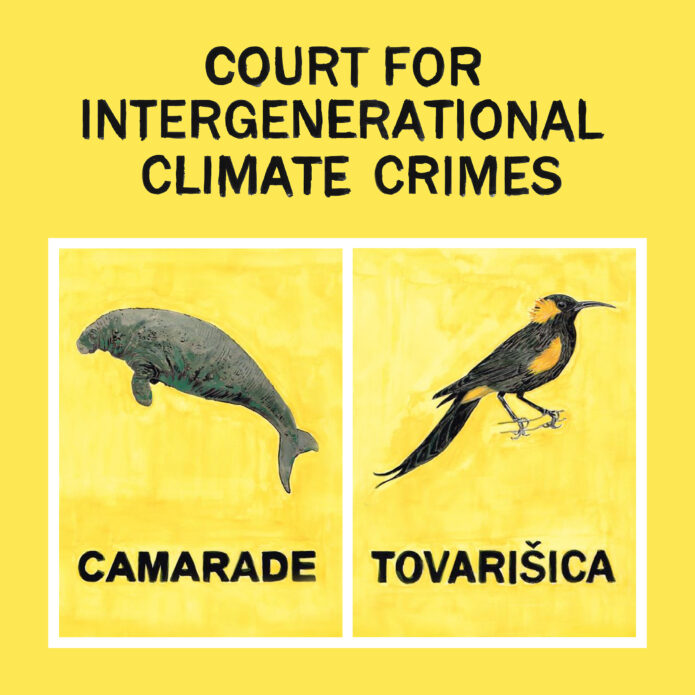
Exhibition: Court for Intergenerational Climate Crimes
A project by Radha D'Souza and Jonas Staal
Agenda
Verdict Presentation: CICC vs. The Dutch State
Presentation of the verdict in the CICC vs. the Dutch State case
Public Hearings: Court for Intergenerational Climate Crimes
Comrades past, present and future vs. the Dutch State, Unilever, ING and Airbus
Opening: Court for Intergenerational Climate Crimes
By Josien Pieterse, Radha D’Souza and Jonas Staal, commissioned by Framer Framed
Network
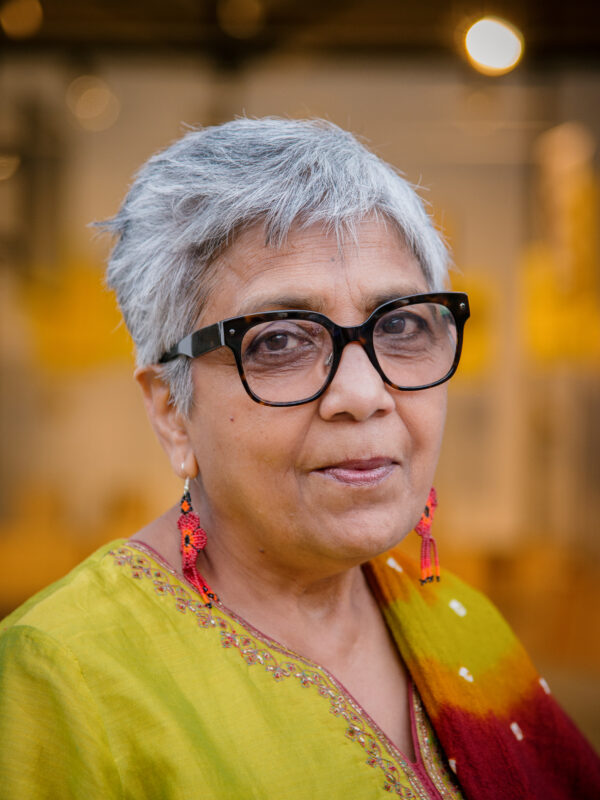
Radha D'Souza
Writer, academic, lawyer and activist
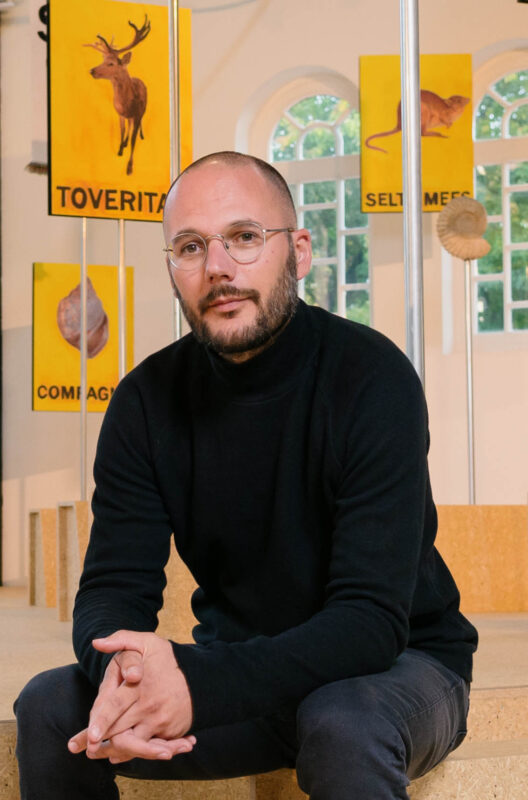
Jonas Staal
Artist
Magazine

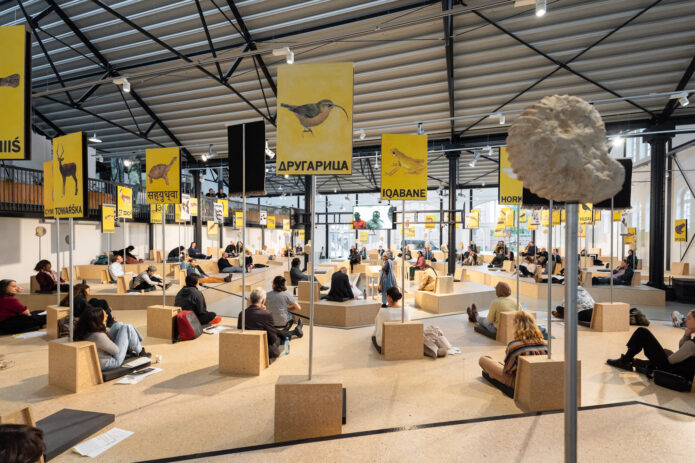
Digital Archive: Court for Intergenerational Climate Crimes
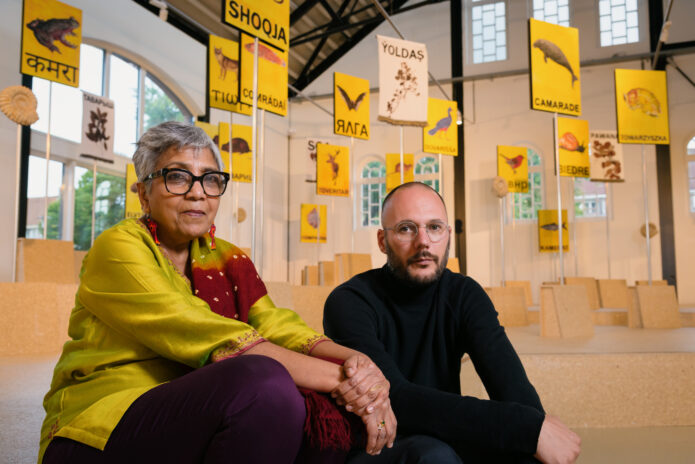
Errant Journal: A conversation between Radha D'Souza and Jonas Staal
